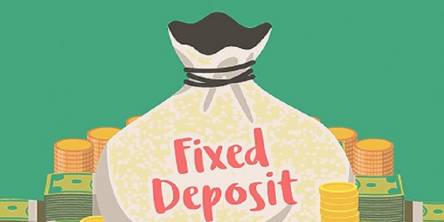IPO vs ICO Explained
The business of Initial Coin Offerings (ICO) is hot right now in the blockchain community. They are a popular way to fund new cryptocurrency projects. Capital is raised by a blockchain company offering its cryptocurrency, or tokens, to investors and enthusiasts for money or bitcoin. It can be likened to crowdfunding and has the potential to revolutionise the way start-ups capitalise themselves.
ICO provides members of the public with a chance to invest in a new business before they’ve really taken off. The ICO takes place before the end of the project to help the founding team with expenses before the launch. This means that there is a high level of risk involved as there is a possibility that all invested capital could be lost by taking a chance on an idea that could flop.
On the flip side though, with no regulatory restrictions imposed on ICO activity, companies can be invested in right from the start of an idea, before a product has even been produced. Like Kickstarter, people can choose to help fund a project that they have an interest in before it explodes.
However, unlike Kickstarter, there is a possibility to profit from taking part in an ICO. Generally, crypto-tokens that are issued through an ICO are sold at a fixed price in the form of bitcoins or US dollars. The value of the tokens isn’t supported by anything but the ICO participants trust that the project team will launch a product in the future. This usually makes the tokens very affordable and attractive to investors that believe in the project.
Once the project is completed, the tokens’ value is likely to increase as there is now a tangible product, rather than simply an idea. Original investors can then choose to sell their tokens to make a considerable profit. It should be remembered though that, as with any investment, profits are not a certainty, particularly with somewhat risky ICOs. An ICO campaign may fail and that would result in all contributions being returned, or if the project is successful, the value of the tokens may not increase.
Furthermore, lack of regulation means that the cryptocurrency community has been targeted by scam ICO campaigns. There are some warning signs to look out for which should alert potential investors to a fraudulent ICO:
• The people behind the project wish to remain anonymous – consider why the developers do not want to make themselves known.
• The whitepaper does not provide an understanding of how the end product will work or does not explain how the money raised by the token offering will be used.
• There is no escrow wallet for contributions (this is where a neutral third party holds and regulates payments so that the ICO project does not have complete freedom over funds).
• The promise of high returns, with little or no effort – profit cannot be guaranteed when investing in an ICO.
Why is it that ICOs are often compared to IPOs (Initial Public Offering) then? Well, there are undoubtedly comparisons to be made, but there are more differences between these methods of raising capital, than similarities.
So, what is an IPO? This is when a company offers shares of its stocks to the public. By "going public” the company is essentially giving up part of their ownership to stockholders. The IPO signifies an exciting time for a company as it means that it requires additional funds to expand due to its initial success. The fundamental difference is that the IPO industry is extremely regulated by the government. This requires a company wishing to sell shares to complete a mountain of paperwork before it can do so. The documentation needs to be prepared properly for the consequences of non-compliance can be devastating for a company.
In contrast, cryptocurrency crowdfunding is a comparatively new concept and so has yet to be regulated by the government. Little, or no, regulation means that any project can start an ICO and with a relatively small amount of effort can influence investors to contribute to their project. This more relaxed approach to raising funds holds both opportunities and risks when weighed up against the more conventional IPO route.
To summarise, while the terms ICO and IPO are very similar, they really are quite different. To launch an ICO, companies simply need to develop a whitepaper to convince investors that their project is worth contributing to. At the other end of the scale, an IPO needs a lot of time, resource, and effort to comply with regulation before a company can “go public”. As with any investment, research is critical to making sure that the right decisions are made, regardless of whether those investments are in ICOs or IPOs.
Similar Articles
In the dynamic landscape of financial markets, savvy investors are always on the lookout for opportunities to enhance the resilience of their portfolios. One avenue that has stood the test of time is investing in gold. In Australia, the significance of gold as a precious metal goes beyond its intrinsic value and aesthetic appeal; it plays a crucial role in diversifying investment portfolios.
Gold has always been considered an asset for the wealthy. From kings to commoners, Gold has been attached to the status of its owner and has been the subject of jealousy among its peers
Every person in the world right now is talking about making a bitcoin investment. It's because the same thing helps them in offering plenty of major advantages in their business or daily life when it comes to making online transactions.
FD or Fixed Deposit is a way of investing your money in a lump sum amount for a certain tenure. The principal amount deposited earns interest cumulatively in the tenure period. FD generates an amount of interest that is greater than that of a savings bank account.
There are various reasons why you should invest your money in a fixed deposit. Due to the prevalent market conditions, the growth in various sectors has decreased. The economic growth is stagnant; return on investment is decreasing while the risk is increasing.
When you welcome a bundle of joy into your family, you realize that being a parent is one of the most beautiful feelings in the world. Apart from showering your little ones with love, you also need to make sure that their future is secure.
Amidst the rising inflation rate in India, a single earning source is not enough. It is why investing a small amount regularly in different financial instruments makes sense. One common problem that many people face is to enforce a habit of investing periodically.
So you have recently planned to invest in a property? Are you looking out for ways to minimize the risk? Here are the thumb rules to help you grow a substantial property portfolio with minimum risk involved.
Family offices are advisory firms that provide comprehensive solutions to effectively manage the wealth as well as finances of affluent and high-net-worth families. However, with the advancement of technology, there has been a paradigm shift in the way a family office works.

ec58.jpg)







